Banana peels, coffee grounds, cardboard and egg shells. These items get automatically tossed into the depths of kitchen trash cans everyday, not to be thought of again until they begin to produce a foul odor.
However, these, and many other pieces of trash, could be used to help slow the effects of climate change. Turning food waste into compost could provide a solution to reducing the amount of greenhouse gases like methane in the atmosphere.
Why it’s Newsworthy: Composting is one way that people can directly contribute to aiding the effects of climate change, and Athens is home to a few places to donate compostable materials.Athens-Clarke County is home to one of two publicly owned commercial composting facilities in the state of Georgia, where anything that was once alive can be processed, including hair, bones, egg shells and greasy pizza boxes.
There are several drop off locations for these compostable materials in Athens, such as the landfill, the student community farm UGArden and buildings on the University of Georgia campus.
“It (composting) is something that is so easily overlooked, but it’s so important for waste reduction,” said Autumn Girardin, the composting intern at the student farm, UGArden.
What is Compost?
Compost is the breakdown of organic materials by bacteria into a soil like substance. This helps methane gas emissions, prevents soil erosion and makes better tasting, nutrient-rich produce possible. There are at home benefits as well, such as allowing the trash to be taken out less and preventing it from smelling as bad.
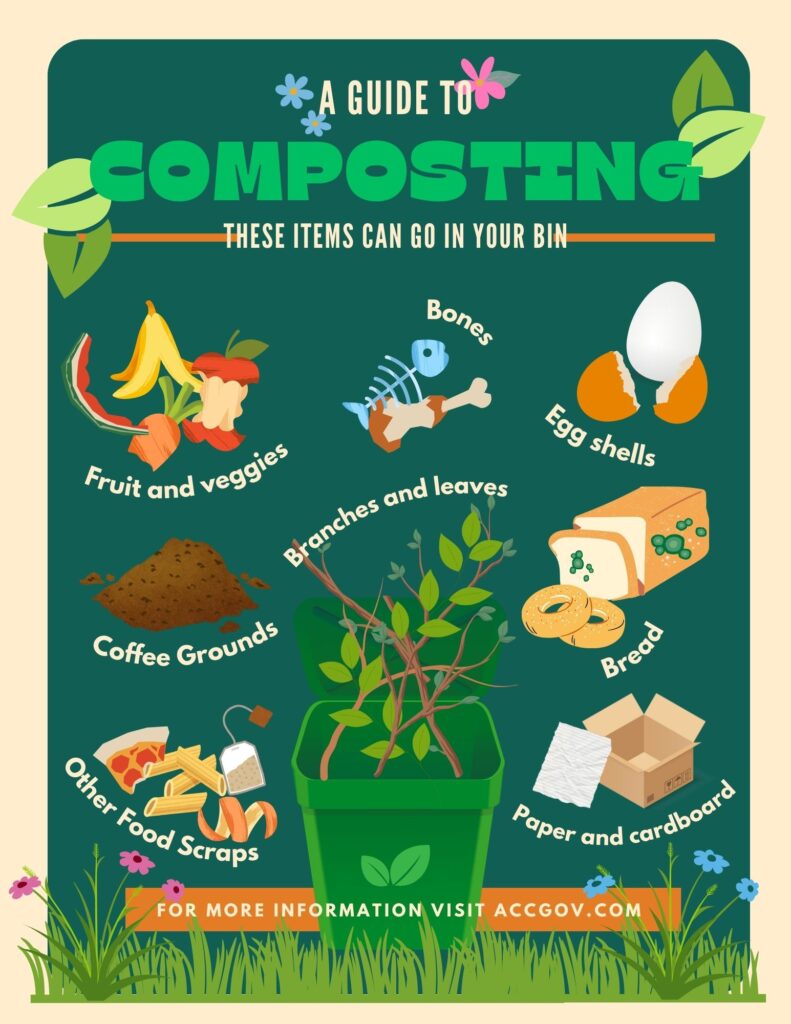
UGArden
UGArden is a student farm that serves as a drop off location for the ACC Commercial Compost. They also collect waste from their harvest and from Campus Kitchen to create compost that will go back into their fields and garden beds.
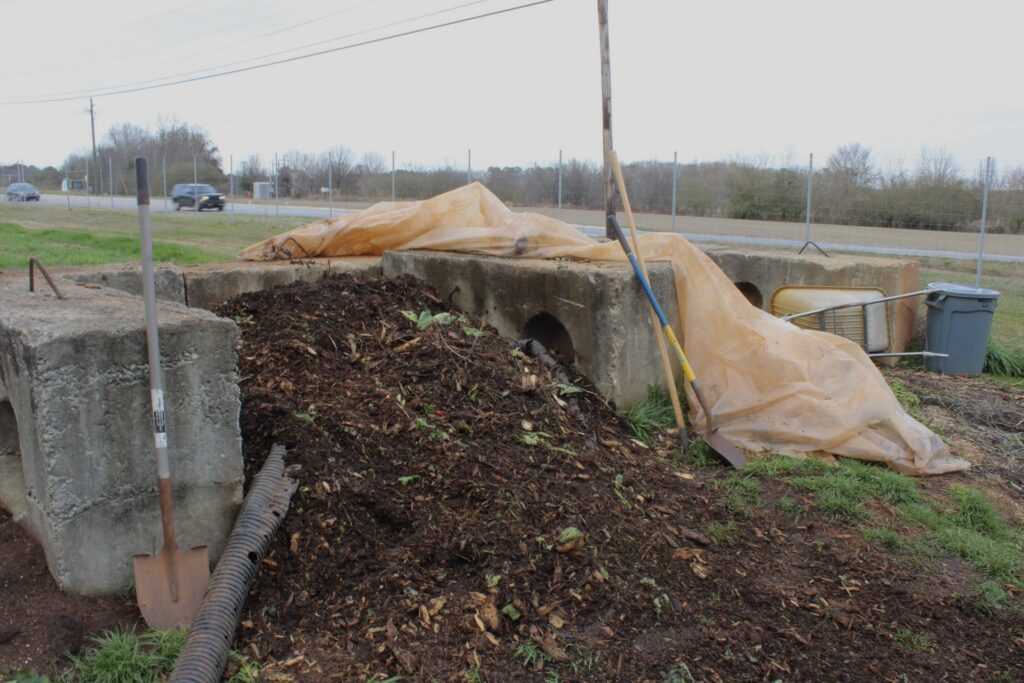
Girardin works weekly at the farm as the compost intern, a job that lets her till the waste pile with a tractor and ensure that the process from trash to soil goes smoothly.
“I have never been that enthusiastic about compost. The more I got to work with it, the more I realized, hey, this is actually really cool and really important,” said Girardin.
In addition to curbing greenhouse gas emissions, the finished compost project has many benefits for the land, including promoting healthier plants, preventing soil loss and erosion and conserving water. These are just some of the reasons that UGArden practices in-house composting.
Coffee grounds, wood chips and expired produce are among some items that are sorted into their own pile because of the wide array of nutrients they offer.
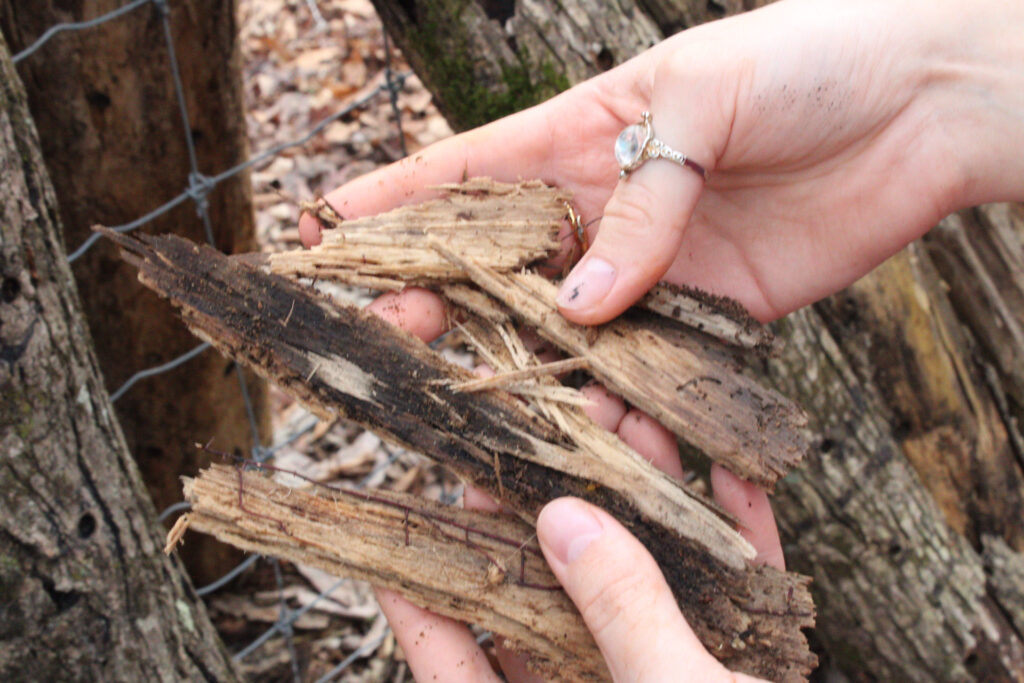
Girardin also keeps up with a pile of vermicompost, which uses worms to break down the organic matter and can even be set up at home.
“A lot of people want to overlook or not think about all of the environmental impacts that we’re facing right now, and it’s just a shame because it could be so easily helped with like a little bit more mindfulness about how you can reduce your food waste,” said Girardin.
However, composting can present some challenges, such as time and resources.
Challenges
Madeline Shepard, a UGA student, said she attempted composting once on her own with little success.
“So the thing was outside and it got like waterlogged, so that’s really bad. We just threw it out. And I was like, that’s the end of that journey,” said Shepard.
At-home composting can take a lot of time and attention, which can deter people from trying to set up their own bin. Because of this high barrier of entry, most of the population does not compost at home.
With a busy schedule, time to drop off materials can be a deterrent as well.
“We don’t have like a designated space at the apartment to drop off and if I had the stuff like I don’t know where to take it,” said Shepard.
However, one program on campus that is working to make compost drop off bins more accessible is the UGA Campus Compost Program.
Campus Compost
UGA Campus Compost is a student-run program that consists of interns that spend their time riding electric tricycles up and down hills and through traffic to collect compost bins from sites on campus. The program started in 2014 and aims to make composting more accessible and common.
One of the “trikers” is Emme McCumisky, a second year at the University of Georgia that services bins in many of the residential halls on campus, including the high rises and Myers Quad.
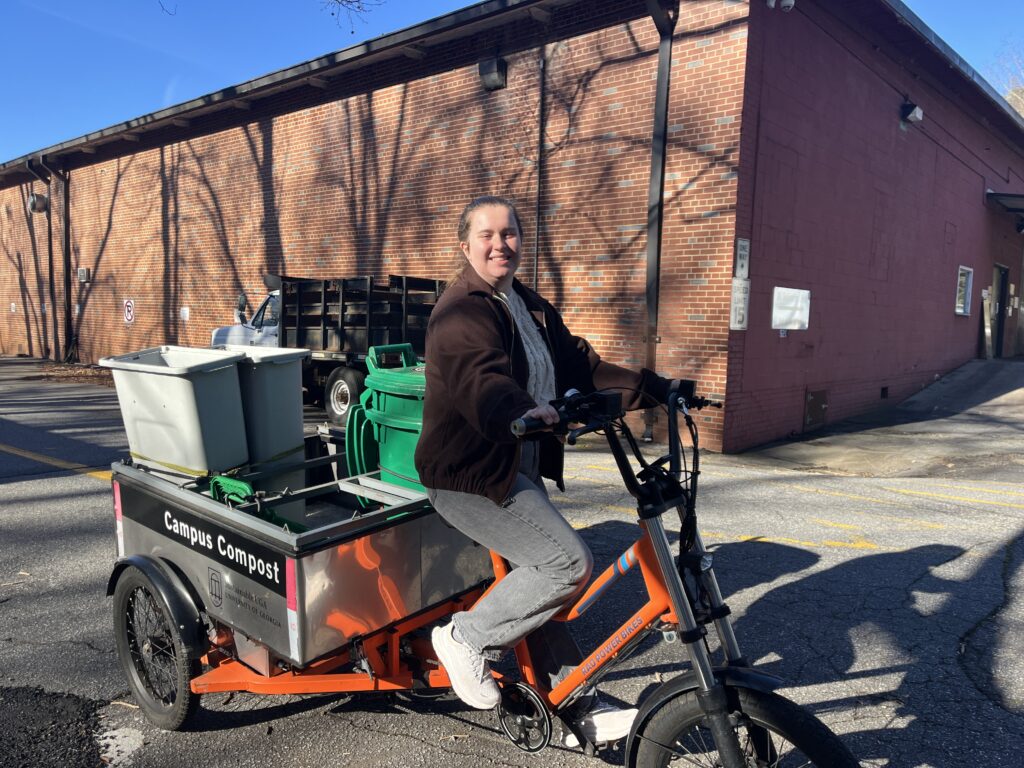
McCumisky is in her first semester of this role, and says the best part of the job is that people have begun to recognize her when she’s on the trike and see the difference she is trying to make around campus.
“It’s cool to be like, I’m making an impact and these people know who I am from what I’m doing,” said McCumisky.
When the interns come to collect the compost items, they are taken back to the Office of Sustainability, where they will be collected by the Athens-Clarke County government to be used in the commercial compost site.
Partaking in the act of composting significantly reduces the amount of waste sent to the landfill, freeing up space and lengthening the amount of time it will take for it to reach capacity. Organic waste that could be composted makes up around 51% of the municipal solid waste at landfills, and is responsible for 58% of methane emissions from the landfill in the U.S.
Organizations like the Campus Compost Program make it easy and possible to get involved with the composting process.
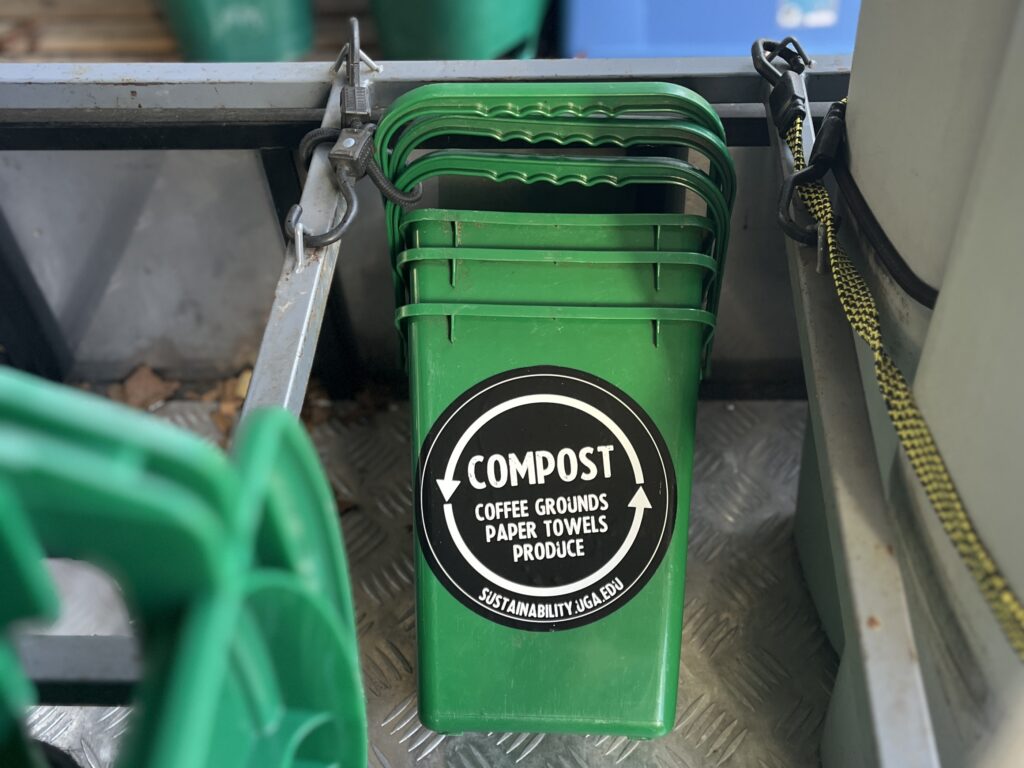
“It’s not a giant feat that takes years and you have to set up this whole system. It really is just an extra bin. And it’s not a huge deal, you just take it out just like the trash and recycling,” said McCumisky.
While composting can seem challenging, organizations in Athens make it easier to help out the environment by donating your food scraps.
Abigail Austin is a senior majoring in journalism at the University of Georgia.


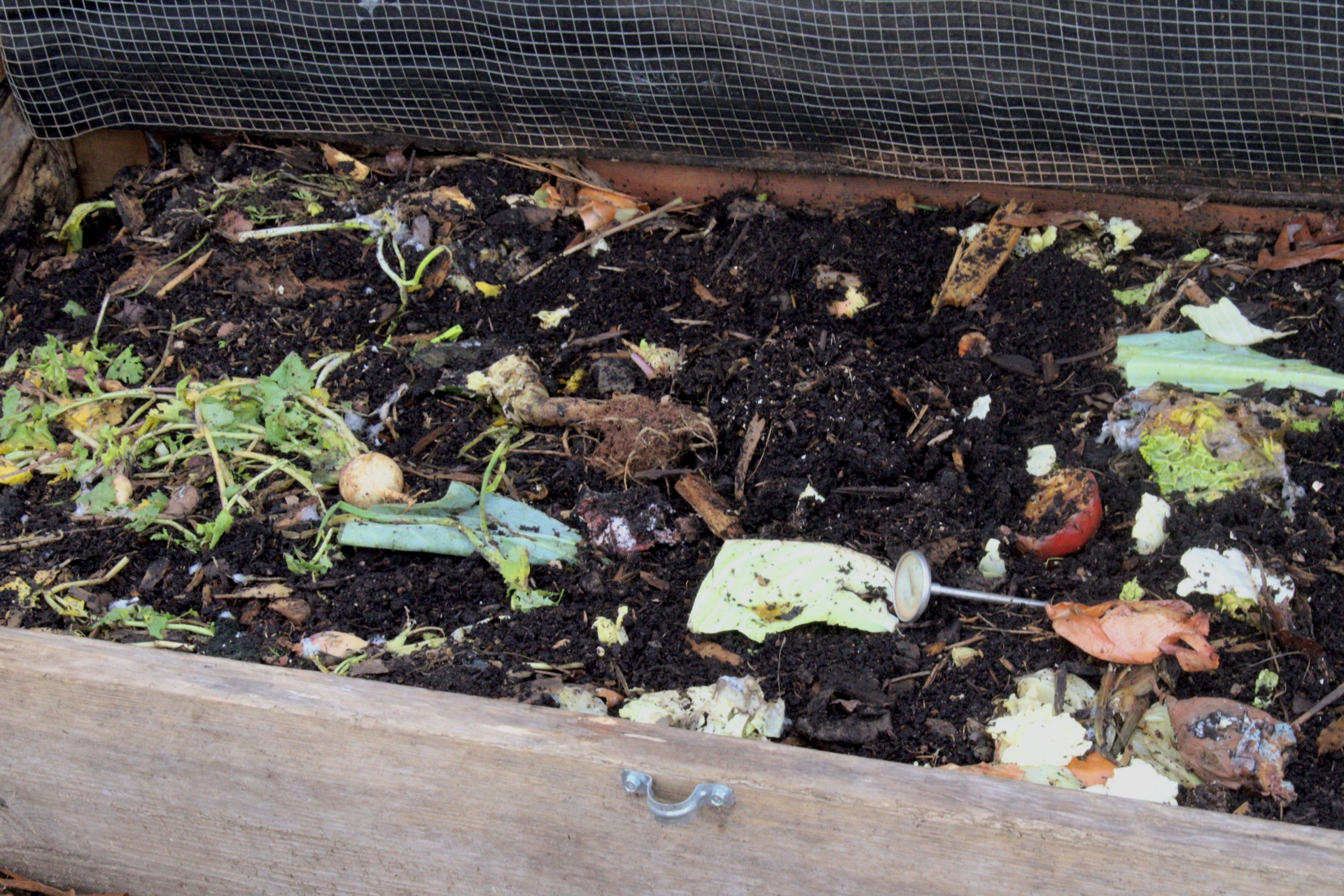



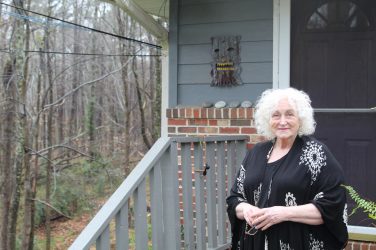



Show Comments (0)